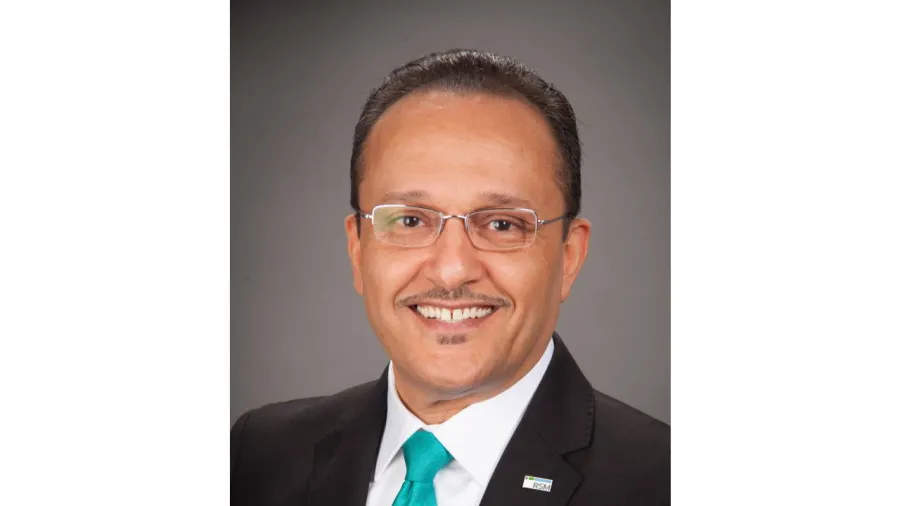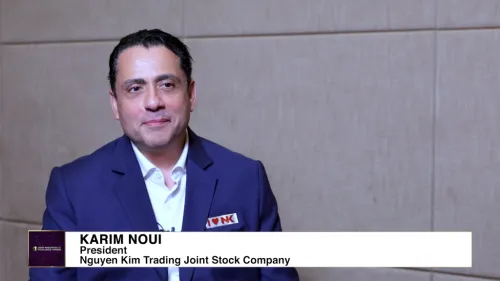
Dr. Bassam Dahman joins panel of judges at Middle East International Business Awards
RSM Dahman’s co-founder believes that digital transformation is crucial for every organisation.
Dr. Bassam Dahman is the co-founder of RSM Dahman (previously known as Dahman & Co.) and its sister firm, RSM Dahman Management Consultancy (previously known as Crescent Management Consultancy), in Dubai in 1996. He launched the RSM UAE IT Consultancy company in 2017.
In Audit and consultancy, Bassam has been the partner-in-charge of several clients in various sectors such as financial services, banks, manufacturing, trade, catering, oil fields' services and transportation, training and education, port management, shipping, travel and tourism, hotels, money exchange, construction, insurance, and more.
In 2010, he was elected as the Regional Leader for MENA (Middle East & North Africa) to oversee the growth and development of RSM within the region and in 2017 the sub-region of West Africa was added to MENA.
Bassam is also a CPA and board member of the International Arab Certified Accountants Association.
This avid desert motocross biker joins the panel of judges in the inaugural Middle East International Business Awards. Asian Business Review took the opportunity to discuss with him the current digital acceleration and how businesses can leverage this.
Which particular markets or sectors are your main focus? Can you share with us your work experience or any backstory that has contributed to your professional career?
RSM, globally works in over 120 countries currently. We work with mid-sized, internationally active businesses and these are present in all markets and mid-sized companies in many countries are now looking to enter newer markets and that’s where RSM supports them through their member firms. If we talk about my region, the MENA and West Africa, I’m working closely with member firms of various sizes and trying to make sure the focus on quality and growth is right and aligned across the region, no matter how big or small the member firm is.
In terms of sectors, there is not a single sector that contributes to over 20% of revenue for the region. Which is to say that we work with clients across many different sectors. We do have specialists with experience in various sectors. Some of these are the sectors that are rapidly growing these days such as e-commerce, digital services, financial services; whilst some are the traditional sectors that are always going to be important for the economy, e.g. construction, real estate, insurance, hospitality, education, healthcare, oil and gas, etc.
I started my career with Boston Market’s internal audit department in Philadelphia, USA. Later, I joined hands with my father, the late Dahman Awadh Dahman, when he retired as the Managing Partner of EY-UAE in 1995, to continue serving the UAE business community regionally and internationally. He asked me to join him to establish together Dahman & Co., which was launched in January 1996. It was also the same year that RSM granted membership status to the firm due to the collective international experience of the founder and partners who shared his vision. 2021 marks our 25th anniversary, and with our dedicated RSM UAE team of more than 70 people, we will hopefully continue our successful journey of serving the UAE business community for many more years to come.
The 25-year journey only made us more competitive and eager to serve our clients with the best service possible and one of the key achievements is that we are still servicing some clients, whom we have been engaged with 25 years ago.
What are the most in-demand business trends that aspiring entrepreneurs should look into right now?
Businesses are evolving with each passing day. Product and service aggregators were in fashion a few years ago, and now digital marketplaces for services are coming up everyday. E-commerce sites for niche products are always popular. But not all of them go on and make it big. A large majority of them do not get to seed funding and even fewer to the next stage. So if an entrepreneur is looking to maximise trends, that may not be the right approach. Instead what does stay is a sustainable business model, solving a problem.
Solving a real problem with an easy fix is what will remain in demand forever.
Almost all industries in the region have been severely affected by the pandemic. What's your advice to those who are in the early stages of recovery?
The UAE is certainly one of the most financially literate markets and has been extremely resilient in riding through different crises in the past. As a mark of resilience, Gulf Cooperation Council countries, like Saudi Arabia, are heavily investing and attracting cross-border investors to give confidence during these uncertain times.
There are favourable government policies and schemes to accelerate collaboration with the private sector in alignment with the national development plans. These favourable policies are assisting the private sector by removing a lot of hurdles for doing business.
How has digital transformation affected the way companies are being formed today? What are some opportunities that businesses should consider to start their road to digitalisation?
Today, all aspects of business have become digital and, hence, digital transformation is crucial for every organization irrespective of its size and domain. Some of the domains like retail, healthcare, education, and manufacturing have a higher priority for digital transformation as compared to other industries because of customer’s preference of viewing or transacting with the organisations on omni-channels that digitalization offers.
We assist clients in their journey with some examples being:
- Automating financial closing processes that otherwise locks senior accountants’ time from the last week of the month to the first week of the subsequent month;
- Automating supplier’s invoice validation for large retailers;
- Automating healthcare patient registration process, sharing of their test reports,
- prescriptions, etc.;
- Automating child’s progress reports and analysis for education.
Despite global economic headwinds, the Middle East continues to attract investments. What do you think are the reasons for this?
The Middle East, especially the UAE, has demonstrated extreme agility and determination in responding to the pandemic. In many instances, the respective governments led the way and the private sector followed. The work governments do in the region give confidence to investors about the long-term commitment of the governments and in these uncertain times, stability, and long-term commitment to growth are very attractive to investors. The financial compliance and tax landscape is also evolving in response to the need for consistency globally, which again helps in demonstrating UAE’s commitment. Add to that, brilliant infrastructure and growth opportunities is what is attracting investors here.
Besides intervention on the fiscal stimulus grant, the UAE has also amended its residency laws to enable select strategically important business leaders and professionals to stay in the country for protracted periods of time. Such a response is likely to encourage spending and investment periodically.
What are some of your hobbies and favourite activities on the side? Can you tell us more about them?
Three of my currently utilised hobbies are:
- I am an avid desert motocross biker with the RSM UAE team since 2014. This sport requires a lot of planning and risk assessment—and I love it!
- I am a master iron welder. I build platforms, houses, and garden furniture.
- Last but not least, I am a NAWI Master Scuba Diver since 1987. It’s a great way to relax, relieve stress, and recharge in this demanding profession.


















 Advertise
Advertise







